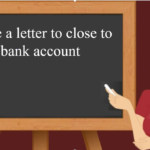Word:
A word is the smallest unit of language that carries meaning. Words are the building blocks of sentences and are used to convey ideas, express thoughts, and communicate with others.
Examples of Words:
- Noun: Dog, city, happiness
- Verb: Run, sing, eat
- Adjective: Beautiful, tall, happy
- Adverb: Quickly, softly, happily
- Pronoun: He, she, it
- Preposition: On, under, between
- Conjunction: And, but, or
- Interjection: Wow, Ouch, Hey
Examples of Words:
-
Dog: A domesticated carnivorous mammal, known for its loyalty and companionship.
-
Happiness: The state of being happy, characterized by joy and contentment.
-
Run: The action of moving rapidly on foot, faster than walking.
Explanation:
-
Dog: This word represents a specific type of animal, and when used in a sentence, it contributes to the overall meaning.
-
Happiness: This word signifies an emotional state and can be used to describe a person’s feelings or the general atmosphere.
-
Run: As a verb, “run” denotes a specific action, and its usage in a sentence provides information about a person or thing in motion.
Sentence:
A sentence is a grammatical unit that consists of one or more words and expresses a complete thought. A sentence typically includes a subject, a predicate, and a complete idea or statement.
Examples of Sentences:
-
The sun sets behind the mountains, casting a warm glow across the valley.
- Explanation: This sentence includes a subject (“The sun”), a predicate (“sets behind the mountains”), and a complete thought about the sun casting a warm glow.
- Explanation: This sentence includes a subject (“The sun”), a predicate (“sets behind the mountains”), and a complete thought about the sun casting a warm glow.
-
Sheila enjoys reading novels, especially those written by classic authors.
- Explanation: In this sentence, the subject is “Sheila,” the predicate is “enjoys reading novels,” and the sentence provides information about Sheila’s reading preferences.
- Explanation: In this sentence, the subject is “Sheila,” the predicate is “enjoys reading novels,” and the sentence provides information about Sheila’s reading preferences.
-
The students diligently completed their assignments before the deadline.
- Explanation: This sentence contains the subject “The students,” the predicate “diligently completed their assignments,” and conveys the information about the students’ actions.
Explanation:
-
The sun sets behind the mountains, casting a warm glow across the valley: This sentence provides a complete thought about the sun’s movement and its effect on the valley.
-
Sheila enjoys reading novels, especially those written by classic authors: The sentence conveys Sheila’s hobby (enjoying reading novels) and specifies her interest in classic authors.
-
The students diligently completed their assignments before the deadline: This sentence describes the actions of the students (completing assignments) and includes additional information about the timeframe (before the deadline).
Examples of Sentences:
-
Simple Sentence: “The cat is sleeping.”
- Explanation: This sentence has a subject (the cat) and a predicate (is sleeping), forming a complete thought.
- Explanation: This sentence has a subject (the cat) and a predicate (is sleeping), forming a complete thought.
-
Compound Sentence: “She loves to read, but he prefers watching movies.”
- Explanation: This sentence consists of two independent clauses (she loves to read and he prefers watching movies) joined by the conjunction “but.”
- Explanation: This sentence consists of two independent clauses (she loves to read and he prefers watching movies) joined by the conjunction “but.”
-
Complex Sentence: “Although it was raining, they decided to go for a walk.”
- Explanation: This sentence includes a main clause (they decided to go for a walk) and a subordinate clause (although it was raining) joined by the subordinating conjunction “although.”
-
Understanding the distinction between words and sentences is fundamental in constructing meaningful and coherent communication in English grammar. Words contribute to the vocabulary, while sentences allow for the expression of ideas and convey complete thoughts.
A) Run
B) Beautiful
C) And
Show/Hide
Answer: B) Beautiful
Explanation: “Beautiful” is an adjective describing a quality.
A) Noun
B) Adverb
C) Pronoun
Show/Hide
Answer: B) Adverb
Explanation: “Quickly” is an adverb describing how an action is performed.
A) He played basketball.
B) She likes pizza.
C) John and Mary went to the park, and they had a picnic.
Show/Hide
Answer: C) John and Mary went to the park, and they had a picnic.
Explanation: This sentence has two independent clauses joined by the conjunction “and.”
A) Shining
B) Sun
C) Brightly
Show/Hide
Answer: B) Sun
Explanation: “Sun” is the subject of the sentence.
A) I like ice cream.
B) Although it was cold, they went camping.
C) Dogs are loyal animals.
Show/Hide
Answer: B) Although it was cold, they went camping.
Explanation: The clause “Although it was cold” is subordinate to the main clause.
A) Noun
B) Adjective
C) Preposition
Show/Hide
Answer: C) Preposition
Explanation: “Under” is a preposition indicating location.
A) The flowers bloomed in the garden.
B) Mary and Tom played chess.
C) While they were sleeping, the phone rang.
Show/Hide
Answer: C) While they were sleeping, the phone rang.
Explanation: This sentence has a main clause and a subordinate clause.
A) Verb
B) Interjection
C) Adjective
Show/Hide
Answer: B) Interjection
Explanation: “Ouch” is an interjection expressing pain or discomfort.
A) The storm raged all night, and trees fell down.
B) I enjoy reading books.
C) Cats and dogs are popular pets.
Show/Hide
Answer: B) I enjoy reading books.
Explanation: This sentence consists of a single independent clause.
A) She
B) Beautifully
C) Sings
Show/Hide
Answer: C) Sings
Explanation: “Sings” is the predicate indicating the action.





